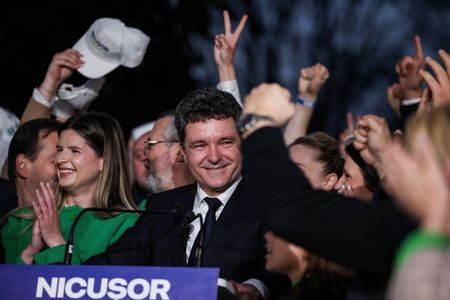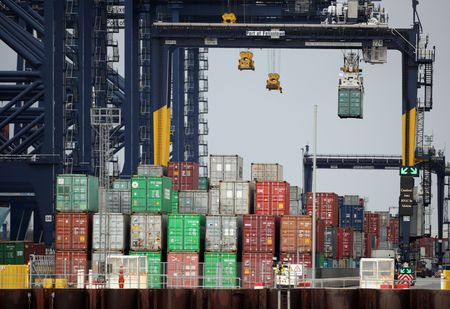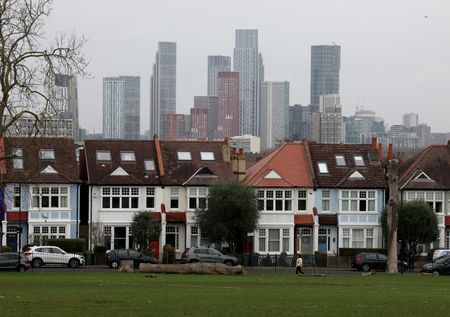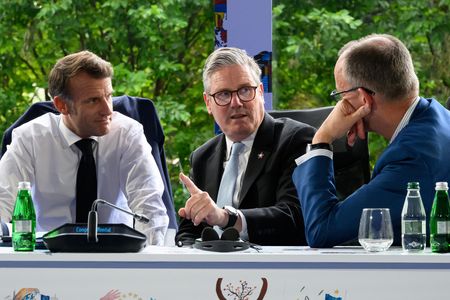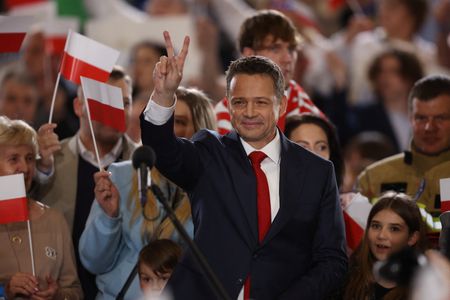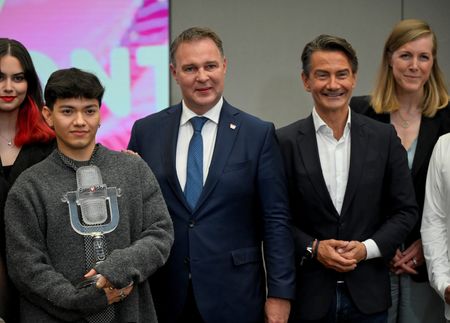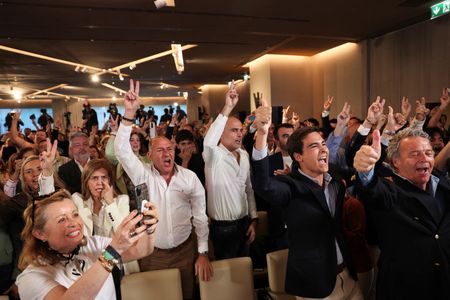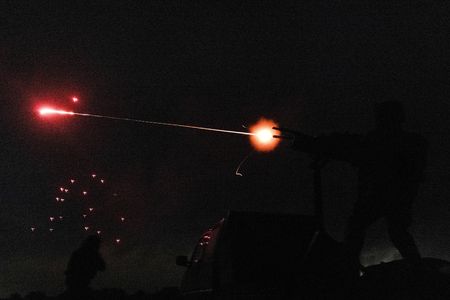By Luiza Ilie, Elizaveta Gladun
BUCHAREST (Reuters) -Romania’s centrist Bucharest mayor, Nicusor Dan, won the country’s presidential election on Sunday in a shock upset over a hard-right, nationalist rival who had pledged to put Romania on a path inspired by U.S. President Donald Trump’s politics.
Official results from nearly all voting stations showed Dan garnering about 54% of ballots cast by voters in the EU and NATO member country of about 19 million people, while Trump supporter George Simion was at 46%.
Dan, 55, a soft-spoken mathematician, made a last-minute dash to the top in recent days after weeks of trailing Simion, a eurosceptic wanting to end military aid for Ukraine in its war with Russia. The election drew the highest percentage of voter turnout in a Romanian election in 25 years.
Simion, who was the top vote-getter in the first round of the election two weeks ago with 41% of ballots cast, conceded after earlier saying he won the election.
Dan had campaigned on a pledge to fight rampant corruption, to maintain support for Ukraine – where Romania has played an important logistic role – and to keep the country firmly within the European mainstream.
On Sunday evening in the capital Bucharest, Dan supporters chanted “Russia, don’t forget, Romania isn’t yours.” Staunchly pro-EU and NATO, Dan said in the run-up to the election that Romania’s support for Ukraine was crucial for its own security against a growing Russian threat.
Ukraine’s President Volodymyr Zelenskiy congratulated Dan on his “historic victory,” writing on social media: “For Ukraine – as a neighbour and friend – it is important to have Romania as a reliable partner.’
The voting in Romania took place on the same day as the first round of a Polish election in which a liberal frontrunner, Rafal Trzaskowski edged ahead of Karol Nawrocki, the candidate backed by the opposition nationalist Law and Justice (PiS) party.
Both elections are being closely watched across Europe amid concern that popular anger with mainstream elites over migration and cost of living pressures could bolster support for Trump and erode unity on the continent over how to deal with Russia.
In Romania, however, the election showed backlash against politicians taking inspiration from right-wing populist Trump’s Make American Great Again (MAGA) movement, according to Mujtaba Rahman, managing director for Europe at consultancy Eurasia Group.
“This is a really strong result for the pro-European candidate,” Rahman said.
“It’s another example of the positive Trump effect on European election cycles where concerns about the political and policy direction moving in a MAGA-like way have mobilised voters.”
‘A DIFFICULT PERIOD AHEAD’
Dan acknowledged that he faces a tough challenge in finding a prime minister to negotiate a majority in parliament to reduce Romania’s budget deficit – the largest in the EU – as well as to reassure investors and try to avoid a credit rating downgrade.
“There will be a difficult period ahead, necessary for economic rebalancing to lay the foundations of a healthy society. Please have hope and patience,” Dan told supporters after exit polls were published showing him ahead.
Dan later said talks could take a few weeks.
The election took place nearly six months after the initial ballot was cancelled because of alleged Russian interference – denied by Moscow – in favour of far-right frontrunner Calin Georgescu, who was banned from standing again.
Romania looked poised to swing towards Russia had Georgescu won, and Simion built a campaign to benefit from his support, signalling he would nominate him as prime minister if he emerged victorious.
Speaking shortly after voting ended, Simion said his election was “clear.”
“I won!!! I am the new President of Romania and I am giving back the power to the Romanians!” Simion said on Facebook. But Simion conceded the election later in the evening.
A crowd of Dan’s supporters celebrated his victory outside his campaign headquarters in downtown Bucharest.
“These elections are really important for the European future,” said Ilinca Sipoteanu, 19. “This is very good for democracy and for the younger generations … and also for our parents and grandparents that fought the system in 1989.”
Romania’s communist dictator Nicolae Ceausescu was overthrown in 1989.
The president of Romania has considerable powers, including being in charge of the defence council that decides on military aid. The president will also have oversight of foreign policy, with the power to veto EU votes that require unanimity.
Political analysts had said victory for Simion would have risked isolating Romania abroad, eroding private investment and destabilising NATO’s eastern flank.
It also would have meant that Hungary’s fiercely anti-immigrant leader Viktor Orban, a long-time Trump ally, and Slovakia’s Robert Fico – who both oppose military aid for Ukraine – would gain a new ally in the European Council in decisions on aid for Ukraine, energy, sanctions against Russia or the EU’s budget.
In the first round of Poland’s presidential election, admirers of Trump’s politics won about 45% of votes cast, according to exit polls, including Nawrocki’s result combined with that of far-right candidate Slawomir Mentzen.
(Reporting by Luiza Ilie and Elizaveta Gladun; writing by Justyna Pawlak; editing by Alan Charlish and Will Dunham)

